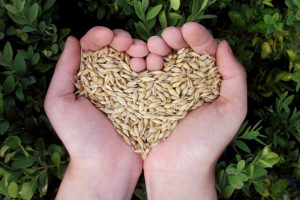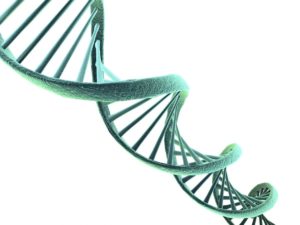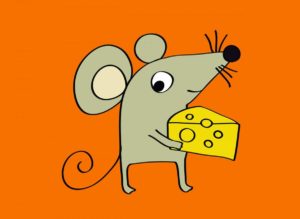Weight Management/Weight Loss
Delicious Danger? A Research Update on Artificial Sweeteners
In human evolution, the preference for sweet taste was beneficial, since it helped to direct newborns toward eating nutritious food. Recent advances in medicine and nutritional sciences suggest that reducing intake of products high in sugar and salt could improve public health. Nevertheless, many people adore sweets and, therefore, artificial sweeteners (AS)—food supplements with chemical structures different from sugar—made their way onto the market.
Myths About Meal Timing and Frequency
Which is better: eating five or more small meals or fasting for 16 hours a day? There are a lot of opinions about the optimal timing of meals. Whether your clients are trying to lose weight or gain muscle, chances are they have heard of meal frequency and meal timing, which are common terms used interchangeably to talk about dietary eating patterns. However, all the talk has created a mythology around the “right” way to eat. It’s time to separate myth from reality by looking beyond opinions and focusing on the science.
2019 IDEA® World Convention: Igniting Passion With Purpose!
Purpose, passion and people! The fitness industry is all about forging relationships that lift others up. Fitness professionals have energy to spare, and they are dedicated to mentoring new generations of pros, networking with peers, and motivating clients and participants every day.
The Weight Debate: Obesity and Health Risks
Think of it as the point-counterpoint discussion on obesity: Is the healthcare profession overemphasizing the negative consequences of extra weight? What are the risks? Is the focus on obesity helping or hurting our clients?
Embracing Health at Every Size
People who have worked to lose weight may have found that achieving short-term weight loss is relatively easy. But weight loss success all too often ends in weight regain. Soon, dieters embark on a new diet, launching a round of weight cycling that wreaks havoc on the body and causes many problems routinely blamed on obesity.
Low-Carb May Not Be Heart Friendly
While Instagram feeds are awash with people broadcasting the weight loss benefits of living off butter and steak, there has been little data addressing the impacts of carb-stingy diets on various health measures down the line. Now we have some indication that there is cause for concern.
Smartphones Could Aid Weight Loss
Most often we’re told to spend less time on our smartphones, but researchers from Duke University have given us evidence that a food-tracking mobile app can be an effective tool for those who want to shed pounds without committing to a more time-consuming intensive diet program.
There Is Power in Protein for Older Adults
Many older adults could benefit from dropping a few pounds of body fat. With weight loss, though, there are often reductions in bone strength and lean body mass, thereby raising the risk of mobility issues and injury from falls. New research shows that a diet tweak might help older people retain their muscle while simultaneously scaling down their body fat.
Correcting Misconceptions About Fat
For years, fat was demonized as dietary “Public Enemy Number One.” Despite the essential roles it plays in the body, including temperature regulation, hormone production and protection of organs, we were told it was also responsible for weight gain and other health woes. As a result, people stocked their kitchens with low-fat items.
Cardio Training and Weight Loss
A systematic review of 77 studies suggests that while both interval training and continuous moderate-intensity exercise are effective for fat loss, interval training may produce results in a more time-efficient manner. Researchers from Brazil and England conducted the review to identify what type of exercise—continuous moderate-intensity (MOD), high-intensity interval training (HIIT) or sprint interval training (SIT)—is best for weight loss.
Yo-Yo Dieting Tied to Heart Problems
Obesity and consistently elevated blood pressure, cholesterol and blood sugar levels have long been linked to a higher risk of heart disease. But what happens when these metabolic risk factors fluctuate over time, as can happen when people flip-flop between diets? The answer may hail from a study in the journal Circulation involving a massive 6.7 million people.
Fewer Carbs May Increase Your Metabolic Rate
Anyone who’s achieved a weight loss goal, then watched his or her waistline expand over the following months, can attest to the incredible frustration of seeing hard-earned results fade away. The reasons for weight regain are many, but a big contributing factor is how the body tends to recognize missing pounds as a need to slow metabolism and burn fewer calories, making it harder for people to maintain weight loss.
Carbohydrate Controversy: “Good” Sugars vs. “Bad” Sugars?
Physiologists regularly extol the importance of carbohydrates as a vital fuel that drives exercise and sport performance. Before the Industrial Revolution, carbohydrates were the major source of nutrients and energy for people throughout the world. Carbohydrates that come primarily from plants in the form of vegetables, fruits and grains are a direct link to the earth’s food chain. However, evidence is mounting that carbs from added sugars in cookies and soft drinks present several health risks.
Helping Clients Enjoy the Taste and Culture of Food
It’s time for Americans to shift their focus from calories, macronutrients and micronutrients to taste, culture and mindfulness. After all, our preoccupation with dieting and health fads has us restricting foods, chasing unsustainable weight loss goals and feeling bad about our nutrition choices—but all we have to show for it is rising rates of overweight, obesity, diabetes and heart disease.
Diet Can Fight The Effect Of Fat Genes
Over the past few decades, researchers have shown that an individual’s
genetic makeup can play a big role in his or her propensity to gain weight and keep it on. For instance, one person may have a gene that makes him more efficient at converting food calories into body fat, while someone lacking this gene can apparently eat as much as she wants without packing on a single pound. Maddening for some, to be sure. But now it seems that dietary choices may have the power to override certain genes associated with body weight.
Can’t Resist the Cookie Jar? Blame the Makeup of Your Brain
It appears that the way our brains are hardwired can play a big role in eating habits and long-term weight loss success, according to research published in the October 2018 issue of Cell Metabolism. In the study, Canadian researchers ran MRI brain scans on 24 people while showing them images of different foods. Participants then began a 1,200-calorie-a-day diet in a weight loss clinic.
Crunch Your Way to a Six-Pack
Calorie counts notwithstanding, research keeps showing that nuts can help in the battle of the bulge. One example was a study presented at the American Heart Association’s Scientific Sessions 2018 in Chicago. In that experiment, researchers from the Harvard School of Public Health found that eating a daily 1-ounce serving of any type of nut—including peanuts and nut butters—in place of calories from low-nutrition foods was associated with a lower risk of long-term weight gain and obesity in more than 125,000 adult men and women.
Ask the RD
QUESTION: Now that I have results from my DNA test, can I use them to figure out which weight loss diet would work best for me?
Are There Benefits to Time-Restricted Eating?
Winning the battle of the bulge may mean going without food for just a little longer. A small, 10-week British study with 13 participants found that people who were required to delay their breakfast by 90 minutes and eat their dinner 90 minutes earlier than normal lost on average more than twice as much body fat as those in the control group, who ate their meals at their usual times. The research was published in the Journal of Nutrition Science.
Fat May Indeed Be Fattening
It’s a million-dollar question: What aspects of food make us more likely to pack on the pounds? Everything from saturated fat to food additives to sugar has been blamed for our obesity epidemic. Now we may have a better idea of what kind of diet contributes most to Buddha-belly, at least in rodents.
The journal Cell Metabolism published research in 2018 showing that mice piled on more weight when fed a relatively high-fat diet than they did when they ate other diets, including those rich in protein or—surprise, surprise—sugar.



















